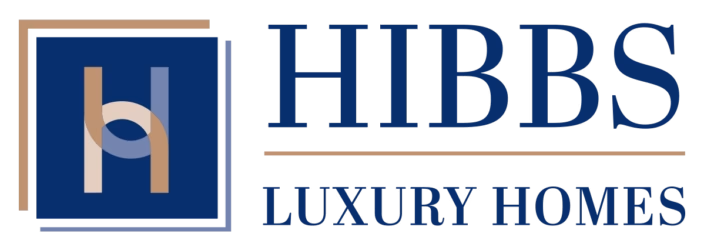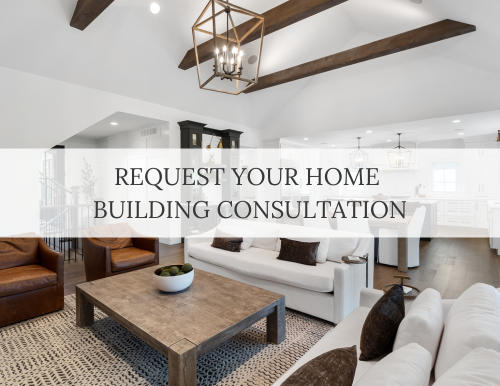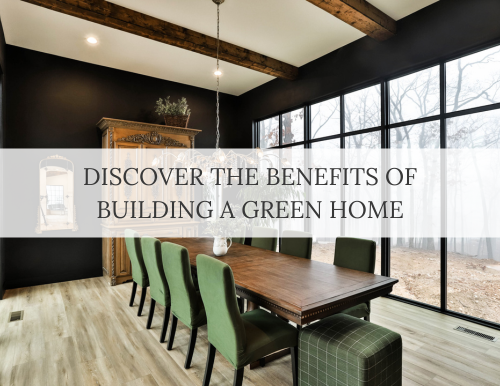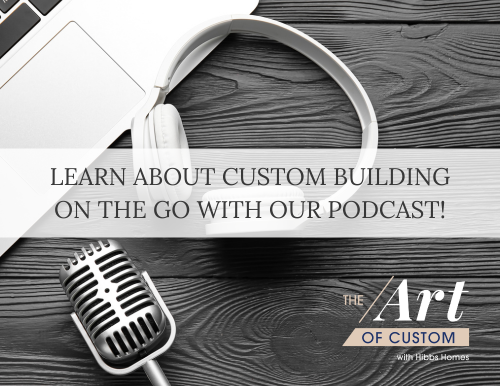Start Smart: Planning Your Custom Building Project
Every successful custom home starts with a clear plan. And the very first step in that plan is defining your goals, vision and timeline.
This season of The Art of Custom is focused on all of the steps in the preconstruction process to ensure your dream home comes to life in the smoothest, most rewarding way possible.
We are kicking things off by helping you ask the questions to clarify what you’re building (and why!), aligning expectations and project plans, and helping you avoid some of the most common early misses that can cost time or money down the road.
Whether you’re just starting to dream or are already scouting lots, this episode will help you set a strong foundation well before you pour the foundation.
Subscribe and follow along this season as we guide you through every step of the pre-construction process!
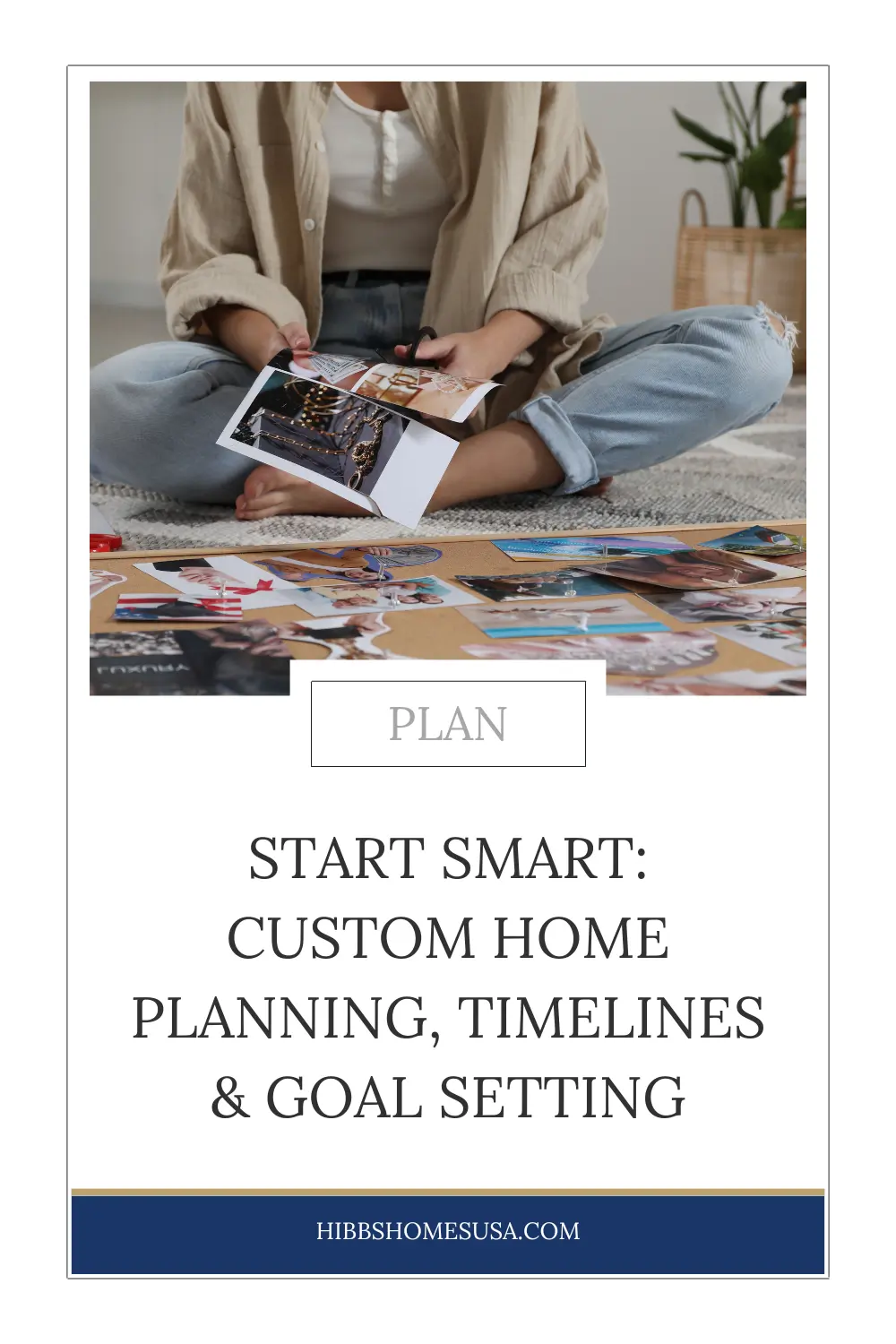
SEASON EIGHT, EPISODE ONE | TRANSCRIPT
KIM
Mirror, mirror on the wall. Can I start my build this fall? We've dreamed it up and planned it all. Now's the time to make that call. When building a custom home, timing really is everything. But so is your vision before breaking ground.
Reflecting on what you're building and why you're building will bring clarity to the entire process and help you and your building team understand what success really looks like.
In this episode, we're pulling back the curtain on the very first phase of your custom home journey, defining your goals and timeline to avoid some of the missteps that can shatter your dream before it even begins.
VOICEOVER
Welcome to The Art of Custom. In today's episode we kick off the season starting with a look at the very first step of your home building journey - defining your goals and time. We'll share the most important questions you should ask before beginning the process as well as tios ti avoid some of the most common pitfalls. Enjoy!
KIM
Welcome to season eight of the Art of Custom, a special seven part series focused on the pre-construction planning phase. If you're in the early stages of your custom home journey or even still planning in the dreaming stage, we created this season just for you. We're pulling together two decades of experience building homes across the country to help you make the most of the first phase of the building process.
Our goal is for you to feel confident, and make decisions that save you time, money, and this is what I like best, Melody, sanity.
MELODY
Yes. I mean, if you know what you're doing, it's easier to track whether or not it's going right. Yes. Correct? So the pre-construction phase, think, is the most confusing for people sometimes.
So that's very appropriate, the sanity part of it. Before we go into the podcast a little bit further, welcome to season eight, can you believe it? It's a lot of seasons, a lot of great information we've shared. Another good season coming up and I know we have a few housekeeping notes to take care of,
Absolutely.
Speaker 2 (02:12.225)
I know, that's a lot of seasons.
Speaker 2 (02:22.006)
Absolutely. So we're going to change to a little bit of a different format. We're going to start releasing episodes every other week and do a shorter season. know, each topic will have seven to eight episodes that we do a deep dive in that particular topic. And when we go off air, if you will, we get people asking where we've been. you know, it's helpful. There are a lot of people listening. And this also gives us a chance. We can kind of interrupt our regular topics and address things newsworthy as they come up.
Yeah, that's something that's important because I remember even last winter there was a lot of talk about tariffs. There's always been a lot of talks about interest rates. So I like this new format. think everybody will stay engaged a little bit better. Plus, it gives us a chance to really focus on some topics. And I like the topics that you have selected for the season eight. It's really good to help everybody understand some of the early process of the construction project.
We're going to start with this first kind of groundwork before groundbreaking. What do you need to do before you start talking to us, right?
It's a great topic because there is so much pre-planning that has to take place, right?
Right, and you know, in order to turn your ideas into a clear, actionable plan, knowing what those ideas are, having them down on paper and communicating those with your building team is going to make everything go so much easier. Have a lot less surprises.
Speaker 1 (03:41.312)
And you really need to know why you want to take this journey. That is very important. And then come up with a game plan.
Absolutely. think before you talk to a builder, before you buy your land, especially before you start sketching out your floor plan, there's a book when it comes to like businesses and things start with your why. Simon Sinek, right? So we're going to ask you to get a little introspective here and why are you building a custom home in the first place?
And there's really several reasons. It could be creating the forever home, which I would say most of our clients kind of fit into that category. Even the ones building out in Park City, where it might be their second home right now, their ultimate goal is to move into that home and make it their forever home. Some people just want to downsize into more of a luxurious type of a home. Then there's also building that retreat for your family and trying to get closer maybe to nature, maybe at schools, or maybe you're kind of a party animal and just be
want to become more closer to various entertainment options. But they're all good reasons and everybody has a reason why they want to build their new home. Let's talk about what do you think that first step is kind of once you've identified the why you're building a
So starting with your daily life, that's kind of feeds into that school thing. Do you work from home? What is it that maybe you're not doing now that you'd like to be able to do in your home?
Speaker 1 (05:02.638)
So we should be taking notes, right? Absolutely. we can share this with your team.
Absolutely. I'm a big list person and checklist, maybe even a spreadsheet.
You're the queen of spreadsheets, that's for sure. I walked into your office not that long ago and you turned around a spreadsheet in a matter of minutes. It would have taken me days to do it.
Well, and now we have a great estimator here in St. who's also a spreadsheet queen and I'm just in heaven. Well, that's why. You know, you can, you can create weighted averages for each of these questions you're asking yourself on your spreadsheet.
hired her right
Speaker 1 (05:34.328)
Some people could, but I think it's a great idea though because some are more important than others. So you do kind of want to focus on that. okay, so we're starting with making lists. Go ahead.
Okay, so do you entertain a lot? We had a client here in St. Louis that built the entire first floor of their home was created in order to open up out into an outdoor space. There was a pass-through window with some bar features. You know, it created a huge flow on that first floor that could be cozy when it's just the family, but opens up for entertainment. So, you know, like you can see why these questions are really important.
Yeah, more and more of our clients are truly asking for that wide open outdoor indoor living space that comes together. Some of the other things a lot of people have been asking about pets. We're doing so much now with pets, whether it's special doors, whether it's special wash tubs, something but pets are extremely popular. So how do you want to pamper your pet with this new build? Plus kitchens, everybody is into kitchen these days.
Absolutely, and outdoor kitchens are huge too. That's one of those things that it used to just be a grill and not your outdoor kitchen, but having that space where you can store beverages and prepare foods and just comfortably cook outside has become huge.
Yeah, and with that, Dirty Kitchens is something too that a lot of people are starting to really want to plan into their new build. And we're doing it more and more often, but it does take extra space. It does add to the budget. So a Dirty Kitchen is something that you're going to want to think about as well.
Speaker 2 (06:59.074)
and we're building for a professional athlete so having you know space for practice facilities and things like that i mean even you know choosing right piece of land you hear about all these baseball players have the practice barns i'm jealous of that and i'm not even a professional baseball player but you know what are the goals what is life is supposed to look like for
Workouts, gyms in the home, entertainment, all that kind of stuff is very important. Something else that obviously is extremely important is kids. Space for the kids.
Yes, and there was a really neat house. It was a forever kind of retirement home, but what I loved about the layout is that they had adult children who they expected to come back and visit. And so there were kind of these suites upstairs, right? So they had their primary bedroom on the first floor, but their kids and grandkids could come visit without, you know, keeping everybody else awake and have a quiet place to go, you know, do bedtime stories and baths and things like that, the Chorazel house.
Yes, yeah, and that's what I tell everybody is this is the beauty of building a custom home. You truly can build it for your lifestyle, your family's lifestyle. So make a list because when you do put that build team together, it's very important to have everything. That's my favorite saying is that's the beauty of a custom home. Well, it really is because not only during the design phase, but the finish phase. What do you want this house to be like? Calm and cozy. Do you want it to be more formal and structured?
and you truly can build and then finish this home to your lifestyle and your dreams. So that's where, you know, making sure you're saving photos and looking on Houzz, and that's H-O-U-Z-Z, Houzz.com. lot of inspirational ideas you can start pinning and saving and sharing later. But I think that's a very important part of the process to get ready to build.
Speaker 2 (08:48.984)
Well, and I think a lot of people believe that those websites and all those boards are just for people who are interested in design, right? But your designer or whoever you're working with, just saving something that really inspires you, you think, really like this. They're going to be able to find common themes between what you may not realize is you really like the stucco look on the exterior. You really like cast stone. They can take just those pieces that are floating around and give you the vocabulary before it.
That just what you said reminded me of that Kohler commercial, remember where the couple comes in with a bathroom faucet and sets it on the table of the architect and says, design the house around this.
I mean, you could design a whole room around, you know, a painting.
Yeah, always true. mean, that was a very important factor by one of our clients in Park City, Utah. Artwork was so important to them that it really, we had to have the wall space available, had to be the right size, had to be the right location, had to have the right lighting. So absolutely, it's whatever triggers you, just share it with your team because that means it's very important. So Pinterest, Pinterest is another really good one. Magazines, cut out photos, just save them all.
I use Instagram. I have, you can create a board and just, you know, these beautiful photos and you know, people will even put DIY tips up, you know, and just because you're not DIYing something doesn't mean that this isn't a look that you're going for, but you know, just creating this is my kitchen inspiration and you can save that to a private board and come back to that and share it with your designer. So I think that one of the things is you go into that meeting and you say, want a modern home and
Speaker 2 (10:27.758)
You want to communicate what does that mean, right? Yeah, but modern doesn't always mean sterile or industrial. know, farmhouse doesn't always mean super cozy. know, there's an interpretation and vocabulary can be limited. As somebody who loves words, it's hard for me to say. But we want to make sure that you can communicate exactly what you're seeing and feeling.
And one of your tips, which I thought was a really good one, is have everybody maybe create a list of what their top five priorities are and then compare and see what is the most important then will be those ideas that everybody has on their list. And again, then you can share it with the builder and share it with the architect and share it with the designer.
It guides design. Everything from land to budget to design, having those priorities and making sure that everybody's aligned on them. Maybe my 12-year-old wouldn't get as big of a vote as I would, but knowing that something is important to one member of the family is always a good thing to bring into the discussion.
Exactly. OK, we're starting to dream, dream big. We're making some listen all. Where do we go next?
We want to build a timeline. Timing is everything and having a realistic idea of what is possible in a custom landscape is important because it does take time and that is something that you as a homeowner have more control over as well.
Speaker 1 (11:47.342)
Yeah, you do. And this is again where you need to rely on the expertise of the builder because the builder and the architect, you want to set realistic expectations because depending upon where you're building, sometimes if there's architectural review committees or if there's an architectural review board in a municipality, it can take a little bit longer to get through the process. Also the architect, you you might interview an architect who says, we typically turn things around in let's say three months. And then another architect says, well,
We take a little bit longer, it's going to be four months. So I always tell our clients to work backwards. When do you want to move into that house? Then give yourself a month or two of a little slush, if you will, some padding, and then work backwards. How big is the house will determine how long the build is, how complicated the house is will help determine that as well. And then I generally tell everybody, if you've worked with your architect and you've worked with your builder and designer, how long have they told you is the design process going to take?
With us, it typically takes six months for a build kind of in the St. Louis area. By the time you design it, by the time you then work with your architect and you work with your designer to help make some of the selections, by the time you do a very thorough job budgeting the house and then the client will actually close on the construction loan, we typically tell everybody plan on six months. Now, sometimes it can go more quickly depending upon the architect and things. So I tell people four to six months for that process.
Depending upon the size of the house, it's anywhere from 10 months to 14 months. So that can kind of help give you some guidelines there. Utah market, takes much longer. The architectural review process is much more intense. I think that's probably it.
Well, and you know your land too. There's a lot more development because once you get into excavation, there's going to be rock blasting probably. If you're building into the side of a mountain, you know, there's going to have to be some grading for, you know, even pulling a driveway up.
Speaker 1 (13:43.128)
driveway, yeah, because you don't want to have a driveway that's too steep. yeah, in the Utah market, I typically tell everybody eight months minimum from a construction standpoint, 14 months, two years, depending upon the size. But again, these are rules for where we are building. Just use the same idea though, in talking with your team to put together a realistic time.
One of the things that we maybe don't emphasize as much as we should is that the biggest pitfall when it comes to creating a timeline is delayed client decisions. If you have something major coming up in your life, like I'm going to be going to Europe for two months, right? If you're not going to be in close contact with your architect and you're in the design process, that is going to put a hold on things. Being able to make a realistic timeline includes much more than just what your builder.
has to do. It has a lot to do with when you're making decisions and you don't want to feel rushed.
don't, and at the same time you want to make sure the builder stays on that timeline. So expediting your decisions, and again, your builder and designer will have a schedule in which you need to keep. So just trust.
But you know, if you're going to tell me that you want to move in by spring and it is fall, I'm going to have to have a serious heart to heart with you. Yeah, it's not.
Speaker 1 (14:56.588)
It's not going to happen. You have not started construction. It just won't happen in this day and age. And that's not just because we as custom builders can't build the home more quickly. It's just there's so many headwinds right now with labor shortages and still a little bit of headwinds with some materials due to some tariff talks and things like that. Now, I want to be clear, though. A production builder, if you go the route of a production builder, you could stand a very good chance of starting in the fall and moving in in the spring. A semi-custom.
or a custom build, it cannot happen that quickly. It just can't.
From the pure fact that the land, you're picking out the piece of land and you don't know what you're going to run into underneath that soil, different things like that. Making sure that you also don't feel rushed and you're builder making decisions about how to solve problems and things like that. Just being relaxed about the timeline is going to be important, but also being realistic.
Yeah, for sure. And you had mentioned possibly some rock in some of the areas in which we build. there's other things that you can run in depending upon where you are in the part of the country. Just a tip about the budget. I know we're not focusing on the budget, this is always not yet. But it's always good to just keep in mind you've got to have some contingency for what happens, what you run into when you start turning dirt. If you don't need that money, you're not going to spend that money. The builder is not going to ask you for it. But just have a contingency.
Absolutely. know, faster does not mean better in this type of build.
Speaker 1 (16:24.662)
No, I'm glad you brought that up because when you're building a custom home, you've taken all that time to design the perfect home and find the perfect selections. Why rush the build? Because you want it to be perfect, right? One of our core values is dedicated to details. And that means those details can take a little bit longer than a typical build because we want everything to be perfect. And so absolutely right, do not rush. I know you'll get excited. I know you're going to want to move in as quickly as possible.
and you might even face a few delays here or there. Maybe it was a really rough winter weather-wise or maybe it's been a really wet spring. Just go with the flow when you understand that it might be another few weeks before you can move in. Understand that you want this home to be perfect. Allow your builder the time to do it because if you push to get in there and they don't have a chance to do a thorough job when they're trimming out the house or you don't have a chance to do a full punch list walk.
and then give the builder at least a week to make all the corrections. You're really hurting yourself in the long run because you're moving into a house that's not complete and you won't be as happy as if you just kind of relax a little bit and let the timing play out.
And if you put that pressure on yourself, you're going to make decisions that maybe you're not going to be happy with in the long run, too. Because like we said, a lot of it comes down to client decisions sometimes. Whether or not they get back to the architect on the drawing, whether or not they're getting back to our designers on the selections, and things like that. So you don't want to put undue pressure on yourself to make a decision, too.
Two words that I tell my clients I never want to hear from them. I wish. I wish I had done this. I wish I had done that. I wish this. Take your time. I know everybody gets excited. I know it's one of the biggest things you'll be doing your entire life, beside getting married maybe. But seriously, take your time and really think things through because you never do want to have to use those two words to anybody, whether it's your builder, your architect, your spouse, or whomever.
Speaker 1 (18:24.288)
Never use those two words, I wish.
in Haydn's Sights is another one, right? Same thing.
Yeah, mine was a lot more simple. Yes.
So designing and building a custom home should feel empowering, not overwhelming. And this season, we're going to give you the tools to start the process with more clarity and control, starting with these lists, right? And today, we started with those first steps to finding your goals and building your timeline. And now we have a few do's and don'ts.
We do. How about if I give them the do's and you give them the don'ts? would you rather... Okay, I'll be the good cop. So do get clear on your why, lifestyle, priorities, so you don't jump into land or design decisions without really knowing what success looks like for you.
Speaker 2 (18:54.542)
Good Cup, Bad Cup.
Speaker 2 (19:09.186)
Don't forget to skip aligning with your family or your partner. This can lead to a rocky build later on. Rocky.
which you there, other rocky build. Okay, also here we go. Do start planning early, as we talked about, at least six to 12 months before you break ground. And ignore some of the overly optimistic timelines that you see online. You know, they really don't account for some of the inevitable surprises that are inherent in custom building.
and do not rush into design or construction without anticipating some challenge coming up along the way. This is the first and only time this home is being built. just like with anything you do for the first time, there is going to be a surprise along the way.
We've warned everybody. right, fun episode. think that we're off to a good start for season eight. In our next episode, what are we going to be talking about?
We're going to be talking about what I think most people would say is the hardest and most stressful part of the process, which is finding land.
Speaker 1 (20:12.874)
my gosh, you're right, that can be because especially in some parts of the country, land is scarce,
It is and you know looks can be deceiving as well.
That'll be fun because I know I know how prepared you are so that means we're going to be talking about you know finding what makes a great lot you know what about some red flags and How do you align your goals with that perfect property sir?
We're also going to be bringing in our land guru, you will. Chris is coming back. So he is the person that when we say someone's going to evaluate the land here in the St. Louis market, he is the one evaluating the land.
Chris is coming back?
Speaker 1 (20:51.042)
We'll also talk about Utah market a little bit in other parts of the country as well.
So today's episode get you thinking about your dream home write it down and bring us your questions We can address it either directly or in an upcoming episode So you can email us at podcast (at) hibbshomes.com or leave us a message at 844-HIBBS20. You can also find our reddit community at r/ArtofCustomBuilding
It's interesting because we do seriously love answering questions. So I know you put out there ways to communicate with us and it's not a hollow promise. We really do like communicating with you. So even if you have questions about building, reach out, ask us your questions, drop us a line as far as, you know, what suggested topics do you have? So we're serious when we ask for some feedback because we love what we do. We love sharing information. Don't care what part of the country you're building in, use us as a resource.
And with our more aggressive timeline, I guess we can answer it lot more quickly as well.
All right, episode number one, season eight is in the books. Thank you everyone for listening. We appreciate it. We'll be back with episode two coming up before long. And until then, take care.
OUTRO: For more information visit www.artofcustompodcast.com or find us on Facebook and LinkedIn as The Art of Custom. Be sure to subscribe to get the latest episodes and please rate and review. The Art of Custom is produced by HugMonster sound with original music by Adam Frick-Verdeen. Thanks for listening.
